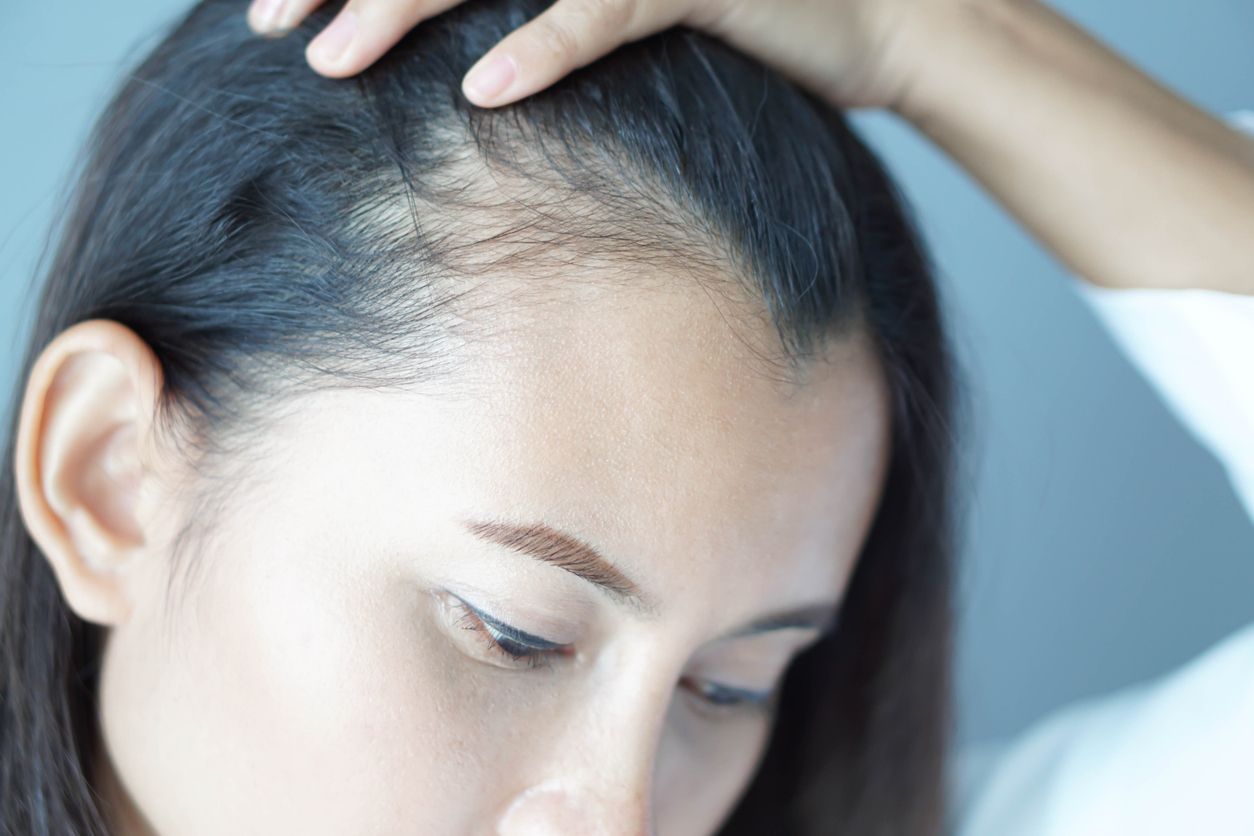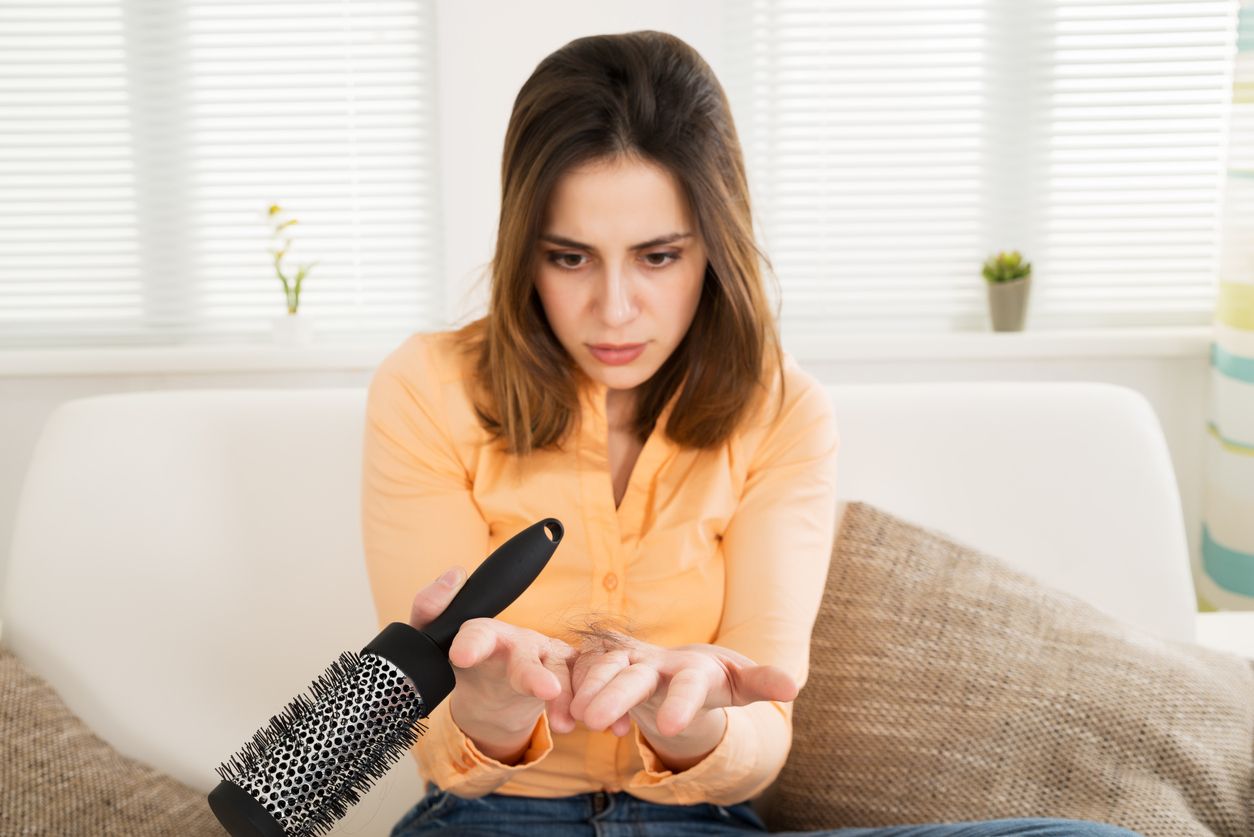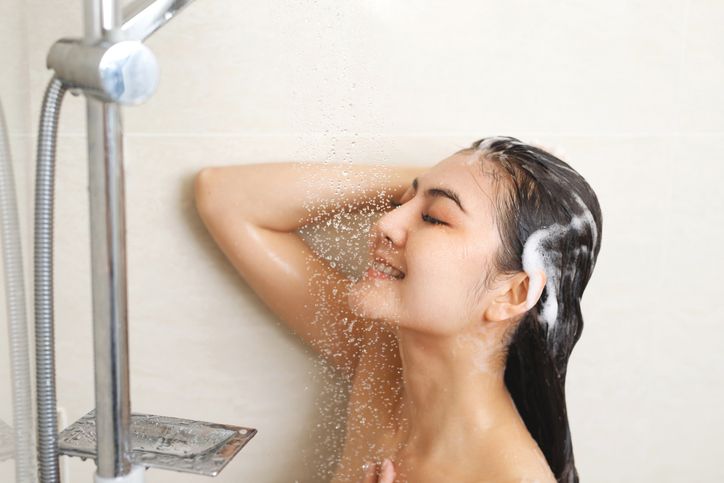
- Home
- Trend
- Weight Loss Strategies
- Acne Tips
- Hair Health Information
- Blemish Removal Tips
- Acne Scar Removal Tips
- Muscle Building Techniques
- Intimate Care Tips
- Postpartum Intimate Care
- Eye Bags Wiki
- Tips for Face Slimming
- Secret of Permanent Hair Removal
- Breast Enlargement Tips
- Cure to Snoring
- Marionette Lines
- Skin-Tightening Secrets
Hard water–related hair loss may be the hidden culprit behind your thinning hair and worsening hair texture! Many people invest in expensive shampoos or change their hair-washing frequency, but if the water quality is poor, all those efforts may be in vain. Ever finish washing your hair and still feel like it’s not clean? Is your hair dry, frizzy, split, or hard to comb? Hard water could be to blame!
Hard water can dry out the scalp and damage hair texture, and in severe cases, even lead to hair loss. Over time, it can negatively impact your scalp health. That’s why understanding how hard water affects your hair is crucial—only then can you take the right steps to restore your scalp and strands to health and shine!
What Is Hard Water? How Does It Differ from Soft Water?

Hard water contains high concentrations of minerals—particularly calcium and magnesium ions. As water travels through soil and rock, it dissolves these minerals, creating what we call “hard water.” The geological conditions of a water source heavily influence its hardness. For instance, areas with limestone typically have calcium-rich water.
According to the World Health Organization (WHO), hard water doesn’t pose a direct health risk. In fact, it can provide additional calcium and magnesium to the body. However, it can cause inconveniences in daily life—like limescale buildup in kettles or pipes, slower heating, and reduced lathering of soap, which lowers cleaning effectiveness.
Water Hardness Levels (by mineral content):
• Soft water: 0–60 mg/L
• Moderately hard: 60–120 mg/L
• Hard: 120–180 mg/L
• Very hard: Over 180 mg/L
Which regions have hard water?
Hard water is unevenly distributed worldwide, depending on regional geology and water sources. Areas rich in limestone or chalk tend to have water that dissolves high levels of calcium and magnesium, resulting in hard or even very hard water. Countries like the UK and parts of Germany, as well as the Midwest and southern US, often have significant hard water issues.
Regions with hard water include:
• UK: London, Oxford, Newcastle, Reading
• Taiwan: Kaohsiung, Tainan, Hsinchu, Changhua
• Japan: Kanto, Okinawa, Hokkaido
• USA: 85% of the country experiences hard water
How Can You Tell If Your Water Is Hard?
Hard water’s high mineral content can affect both hygiene and health. Here are some simple methods to check if you have hard water at home:
1. Soap Test
Add soap to a glass of water and shake it. If there’s little foam and a filmy residue on the surface, it’s likely hard water. The fatty acids in soap react with calcium and magnesium ions in hard water, reducing foaming.
2. Look for Mineral Residue
Check inside your kettle for white buildup or inspect bathroom faucets for chalky limescale. These signs indicate high mineral content in the water. Over time, hard water can clog pipes and reduce the efficiency of household appliances.
3. Use a Hard Water Testing Kit
Purchase a testing solution or digital test kit for accurate measurement of water hardness. These tools detect calcium and magnesium levels and can help you determine whether you need a water softener.
免費體驗
F8 Hair Regrowth Treatment
1 Minute Self-Registration
Date should not be before minimal date
Does Washing Hair with Hard Water Affect Hair and Scalp Health?

A 2016 study found that washing hair with hard water for 30 days led to visibly thinner strands, wrinkled hair shafts, and worsened dryness. Long-term use of hard water can cause:
1. Mineral Buildup Clogs Scalp Pores
Calcium and magnesium in hard water accumulate on the scalp, forming a mineral layer that clogs pores and blocks normal oxygen exchange. This can cause itchiness, dandruff, and even impair hair follicle health and growth—potentially worsening hair loss if left unaddressed.
2. Reduced Shampoo Effectiveness
Minerals in hard water react with shampoo to form “soap scum,” reducing foam and cleaning power. As a result, hair isn’t properly cleansed and can appear flat, greasy, or dull, aggravating scalp discomfort.
3. Dry, Brittle, and Fragile Hair
Minerals in hard water adhere to the hair surface, drawing out moisture and stripping away elasticity and shine. Over time, hair becomes dry, frizzy, tangled, and prone to breakage. For chemically treated or dyed hair, hard water can accelerate color fading and structural damage.
Hair Experts: Hard Water Isn’t the Only Cause—But It Can Worsen Hair Loss!
Hard water’s mineral content can damage hair follicles and make hair more fragile. While there are many causes of hair loss, hard water can certainly worsen existing scalp issues and reduce hair volume and quality.
1. Clogged Hair Follicles
Mineral buildup may block follicles, preventing essential nutrients from reaching the roots. This weakens hair growth, thins hair, and disrupts scalp oil balance—potentially causing dryness or excess oil and starting a damaging cycle that deteriorates hair health.
2. Shortened Hair Lifespan
Mineral residue can damage the hair cuticle, reducing elasticity and strength. Once the cuticle is compromised, hair loses its natural barrier, making it more susceptible to UV, pollution, and heat-styling damage. This can lead to premature hair shedding and thinning, making hairstyles harder to maintain and impacting confidence.
3. Intensified Hair Loss
Hard water can amplify the effects of other hair loss causes, such as stress, poor nutrition, or hormonal changes. As scalp conditions deteriorate, issues like dandruff or inflammation may arise, further damaging follicles. Additionally, mineral residues from hard water reduce the effectiveness of shampoos and treatments, making hair loss harder to control.
6 Practical Ways to Combat Hard Water Hair Loss
Minerals in hard water can dry out hair and scalp. Here are simple and effective tips to minimize damage and keep your hair smooth and shiny:
Install a Showerhead Filter
A quick and effective fix! These filters remove most mineral deposits, including calcium and magnesium, reducing direct damage to hair. You’ll notice smoother water and healthier hair and scalp.
Use a Water Softener System
For a long-term solution, install a water softener at home. It uses ion exchange to transform hard water into soft water, preventing mineral buildup in hair. It’s a worthwhile investment—especially in areas with persistent hard water.
Choose a Hard Water–Friendly Shampoo
Specialized shampoos for hard water often contain chelating agents like EDTA that neutralize mineral buildup. These formulas clean hair effectively while restoring shine and smoothness.
Do a Weekly Deep Cleanse
Use a clarifying shampoo once a week to thoroughly remove mineral residue and buildup from hair and scalp. This helps your hair feel lighter and enhances the effects of other hair care products.
Use Nourishing Hair Oils
Dry, frizzy hair needs extra nourishment. Natural oils like coconut oil or argan oil provide deep hydration, improve elasticity, and add shine. Apply a small amount after shampooing—don’t overdo it to avoid greasy strands.
Boost Your Nutrition
Healthy hair starts from within. Eat foods rich in iron, zinc, and protein—like fish, egg yolks, and nuts—to strengthen hair roots and promote scalp health. A balanced diet enhances hair resilience and overall glow.
免費體驗
F8 Hair Regrowth Treatment
1 Minute Self-Registration
Date should not be before minimal date
Do Hongkongers Need to Worry About Hard Water Hair Loss? Don’t Ignore Other Causes!
Although Hong Kong’s water is classified as soft, residents who have immigrated to hard water regions (such as the UK or the US) may experience increased hair loss. However, hair loss isn’t only related to water quality—it can be caused by several other factors:
• Hereditary hair loss (e.g. male pattern baldness)
• Stress and lack of sleep
• Nutritional imbalances
• Excessive dyeing, perming, or use of high-heat styling tools
To effectively address the common concern of hair loss, the Perfect Medical F8 Hair Regrowth Treatment combines cutting-edge technology with expert care to nourish the scalp and hair roots, helping you achieve thick, healthy hair.
F8 Hair Regrowth Treatment – How It Works
Low-Level Soft Laser Technology
The F8 Hair Regrowth Treatment uses patented low-level soft laser technology to deeply stimulate hair follicles, boost blood circulation, and enhance the scalp's ability to absorb nutrients—reactivating dormant follicle cells.
Professional Hair Growth Serum
Paired with a specially formulated serum for hair loss, the treatment uses advanced delivery technology to precisely penetrate the hair follicles, strengthening the roots and reducing hair breakage and shedding.
Scalp Environment Restoration
The treatment also deeply cleanses the scalp to address common causes of hair loss, such as excessive sebum production or clogged follicles, restoring balance and creating the ideal environment for hair growth.
Scientifically validated and expert-endorsed, the F8’s low-level laser therapy effectively revitalizes follicles and promotes new hair growth. It’s not only highly effective but also completely safe. As a non-invasive procedure, the entire experience is relaxing and comfortable, making it especially suitable for all hair types and individuals with sensitive scalps.
Our professional team will also tailor a personalized treatment plan based on your scalp condition and degree of hair loss, ensuring the most suitable and effective solution for each customer. Many clients report a noticeable reduction in hair fall and increased hair volume after just a few sessions—helping you regain your confidence fast.
Book a free trial of the Perfect Medical F8 Hair Regrowth Treatment now! Let our experts analyze your scalp and develop a customized hair loss solution tailored just for you. Take action today—your transformation starts now!
Free Trial: Perfect Medical F8 Hair Regrowth Treatment免費體驗
F8 Hair Regrowth Treatment
1 Minute Self-Registration
Date should not be before minimal date
FAQ

How can I quickly test the hardness of water?
You can purchase simple water hardness test strips to easily check your home water quality. Just dip the strip into water for a few seconds and wait for the color change. Within a minute, you’ll know whether your water is soft or hard—quick and convenient.
What effect does hard water have on hair?
Washing your hair with hard water over time may lead to dryness, frizziness, and even scalp issues due to mineral buildup. Calcium and magnesium ions in hard water coat the hair strands, preventing them from absorbing nutrients from hair care products. As a result, hair becomes weaker and harder to manage.
How can I prevent hair from deteriorating after washing?
Using a shampoo that contains chelating agents is a great option. These shampoos help neutralize the minerals in hard water and reduce damage. Also, following up with a nourishing conditioner can help restore smoothness and shine. Occasionally treating your hair with deep-conditioning masks can further enhance repair.
Should I install a water softener?
If your home water is particularly hard and affecting daily life—for example, making laundry rough or leaving skin dry—it’s worth considering a water softener. It removes minerals like calcium and magnesium, improving not just your hair-washing experience but also extending the lifespan of household appliances.
Do I need professional help to deal with hard water problems?
If you’re experiencing severe hair loss along with other hard water-related issues—like scalp sensitivity or a sudden drop in hair quality—it’s advisable to seek professional assistance. You may consult a water quality expert to test your home's water or speak with a hair care specialist for targeted scalp treatments. At the same time, improving your diet and hair care routine can help alleviate the problem.








